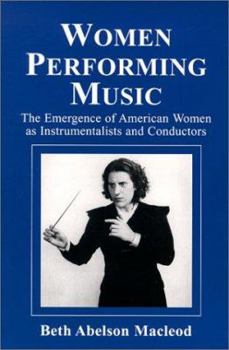Women Performing Music: The Emergence of American Women as Classical Instrumentalists and Conductors
Select Format
Select Condition 
Book Overview
This book explores the experiences of women from the late nineteenth and early twentieth centuries who pursued careers as public performers, charting a new course in an era when women's musical activities were generally consigned to the parlor. Certain instruments had historically evolved as "appropriate for women," and the flamboyant personalities and extroverted emotionalism of Romantic virtuosos and conductors were the antithesis of those qualities traditionally admired in women. However, this work presents an unusual group of young women who nonetheless became noted virtuosos, studying abroad as teenagers and touring North America upon their return. Detailed profiles are given of three remarkable musicians from among that unusual group: Fannie Bloomfield-Zeisler (1863-1927)--virtuoso pianist, wife and mother; Ethel Leginska (1886-1970)--pianist, conductor, and 1920s "new woman"; and Antonia Brico (1902-1989)--conductor and transitional figure to the late twentieth century. A concluding chapter contrasts the experiences of women classical musicians in the late nineteenth and the late twentieth centuries. Included are a number of photographs and drawings which impart the perceptions of audiences and critics of the stage presence of these performers.





